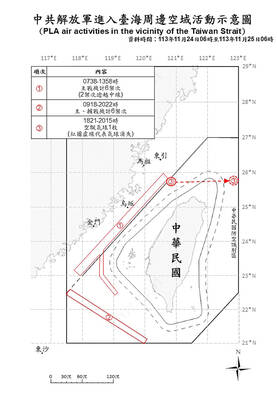Use of two medical devices to help prevent sudden cardiac death and treat neurological disorders has been added to National Health Insurance (NHI) coverage, the National Health Insurance Administration announced yesterday.
The devices are subcutaneous implantable cardioverter defibrillators (S-ICD) and deep brain stimulators (DBS), it said in a statement.
The expanded coverage would benefit about 90 people each year and require a reallocation of about 76.5 million points, the agency said.

Photo: Chiu Chih-jou, Taipei Times
At the current exchange rate of NT$0.9 per point, that amount translates to nearly NT$70 million (US$2.2 million), it said.
The NHI has covered the use of intravenous cardioverter defibrillators (ICD) since 2003 for the treatment of ventricular tachycardia, it said.
People who cannot be treated with an ICD, such as small children or those with vascular malformations, an S-ICD is necessary, the statement said.
With the value of a single S-ICD at 950,000 points, annual expenditure would be nearly NT$26 million for 30 machines, it said.
DBS is the best treatment for dystonia — a nervous system condition that causes uncontrollable muscle contractions — when botulism toxin treatments fail, it said, adding that the electricity use of DBS means rechargeable devices are the most effective option.
As many people with dystonia are young and have limited mobility, families often bear a significant burden, it said.
Following discussions with clinical experts and medical device manufacturers, NHI coverage would now include DBS, with each machine being valued at 834,310 points, it said.
With an expected 58 uses for people with NHI coverage per year, the annual expenditure is expected to be more than NT$43 million, it said.

Theaters and institutions in Taiwan have received 28 threatening e-mails, including bomb threats, since a documentary critical of China began being screened across the nation last month, the National Security Bureau said yesterday. The actions are part of China’s attempts to undermine Taiwan’s sovereignty, it said. State Organs (國有器官) documents allegations that Chinese government officials engage in organ harvesting and other illegal activities. From last month to Friday last week, 28 incidents have been reported of theaters or institutions receiving threats, including bomb and shooting threats, if they did not stop showing the documentary, the bureau said. Although the threats were not carried out,

‘GRAY ZONE’ TACTICS: China continues to build up its military capacity while regularly deploying jets and warships around Taiwan, with the latest balloon spotted on Sunday The US is drawing up contingency plans for military deployments in Japan and the Philippines in case of a Taiwan emergency, Japan’s Kyodo news agency reported. They would be incorporated in a first joint operation plan to be formulated in December, Kyodo reported late on Sunday, citing sources familiar with Japan-US relations. A US Marine Corps regiment that possesses High Mobility Artillery Rocket Systems — a light multiple rocket launcher — would be deployed along the Nansei Island chain stretching from Kyushu to Yonaguni near Taiwan, Kyodo said. According to US military guidelines for dispatching marines in small formations to several locations,

As Taiwan celebrated its baseball team’s victory in the World Baseball Softball Confederation’s Premier12 on Sunday, how politicians referred to the team in their congratulatory messages reflected the nation’s political divide. Taiwan, competing under the name Chinese Taipei (中華台北隊), made history with its first-ever Premier12 championship after beating Japan 4-0 at the Tokyo Dome. Right after the game, President William Lai (賴清德) congratulated the team via a post on his Facebook page. Besides the players, Lai also lauded the team’s coaching and medical staff, and the fans cheering for them in Tokyo or watching the live broadcast, saying that “every

The Mainland Affairs Council (MAC) yesterday confirmed that Chinese students visiting Taiwan at the invitation of the Ma Ying-jeou Foundation were almost all affiliated with the Chinese Communist Party (CCP). During yesterday’s meeting convened by the legislature’s Foreign Affairs and National Defense Committee, Democratic Progressive Party (DPP) Legislator Michelle Lin (林楚茵) asked whether the visit was a way to spread China’s so-called “united front” rhetoric, to which MAC Deputy Ministry Shen You-chung (沈有忠) responded with the CCP comment. The MAC noticed that the Chinese individuals visiting Taiwan, including those in sports, education, or religion, have had increasingly impressive backgrounds, demonstrating that the